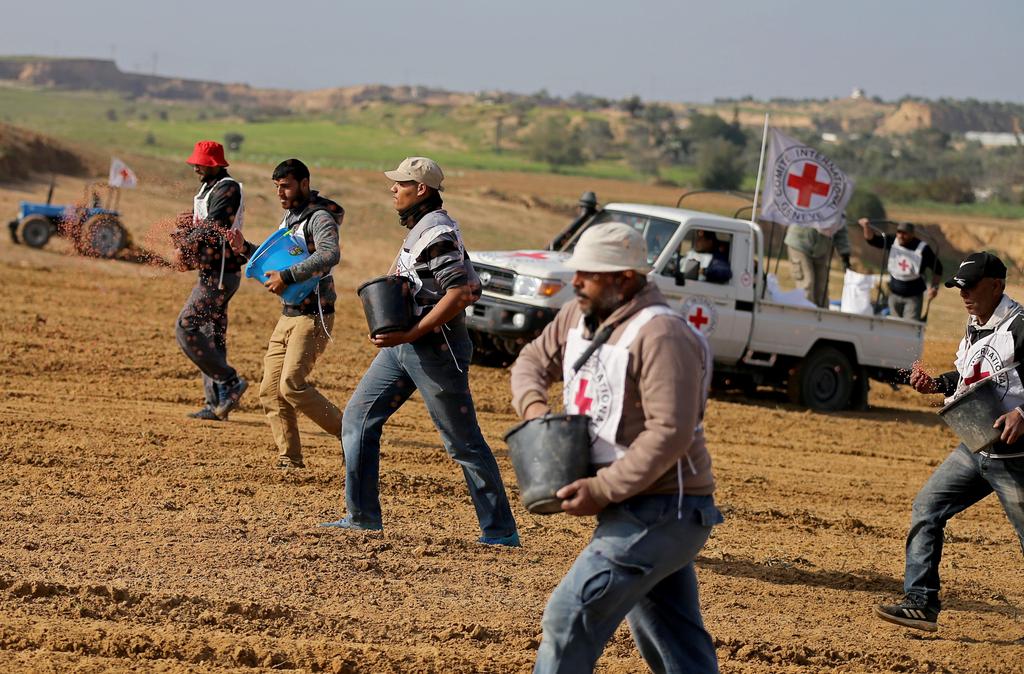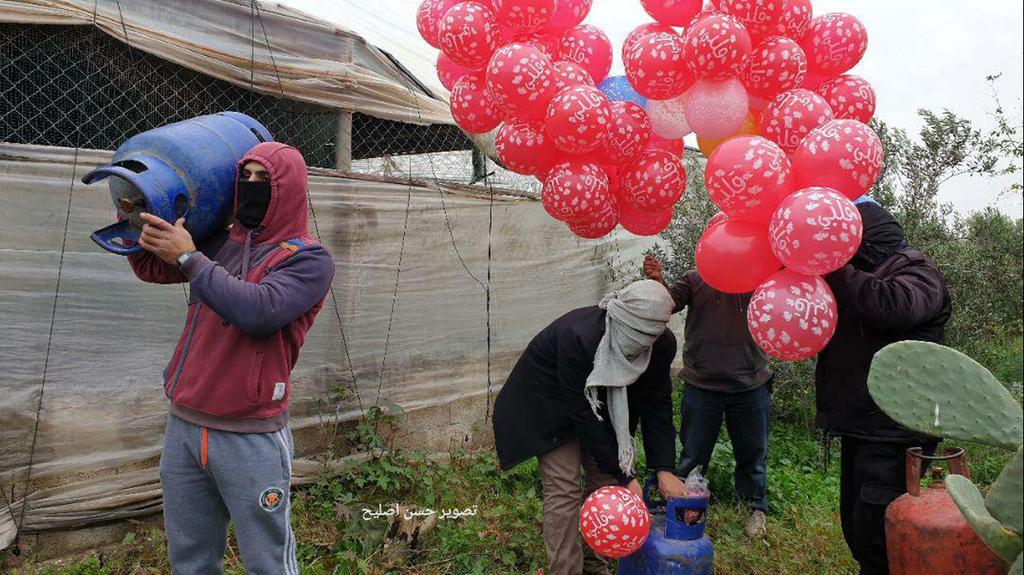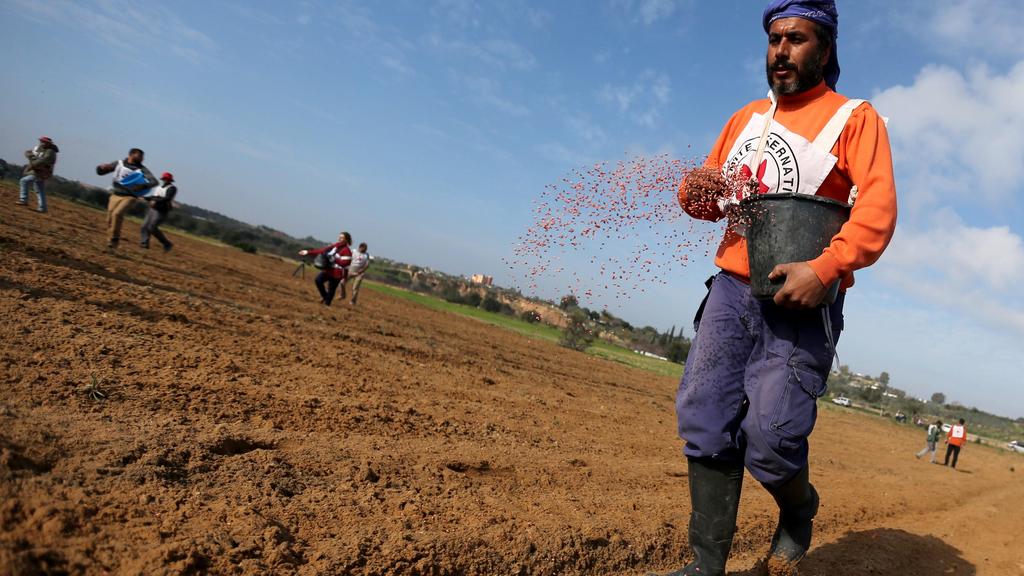Returning to his fields for the first time in 14 years, Palestinian farmer Naser Abu Isaeed surveyed the toll taken by conflict on formerly productive soil.
"I saw an empty area full of holes and dry weeds," said Abu Isaeed, who once grew fruit on the tracts along Gaza's volatile border with Israel.
3 View gallery


Palestinian farmers, helped by the International Committee of the Red Cross (ICRC), throw wheat seeds as they plant a field near the Israel Gaza border
(Photo: Reuters)
The border between Israel and Gaza has long been a source of conflict, which increased after Israel's unilateral withdrawal from the coastal enclave in 2005 and Hamas' violent takeover two years later.
Militant groups regularly fire mortars and rockets at Israeli population centers on the other side of the border, prompting Israeli military responses. In recent years, the Gaza terror groups have also launched homemade bombs and incendiary devices across the border attached to balloons, making it difficult for the IDF to identify.
Recent internationally mediated attempts to reach an agreement for long-term calm have stalled, leading to an upswing in attacks from Gaza and Palestinian protests along the fence that often turn violent.
3 View gallery


Palestinian militants in Gaza prepared to launch explosives attached to balloons into Israel
Abu Isaeed is one of about 600 Palestinian farmers who regained access to their fields along the border to cultivate crops under a project launched by the International Committee of the Red Cross.
Citing security concerns, Israel has for years designated a 100 metre by 300 metre strip along its 40-km (25 mile)-long fence at the frontier as off-limits to Palestinians in Gaza, an enclave ruled by the Hamas militant group.
Palestinians say the policy has deprived them of large areas of farmland, cut into livelihoods and reduced the space available to the densely populated strip's two million residents.
Under the ICRC project, launched in 2015, members of the Hamas-led Interior Ministry have cleared unexploded ordnance and other war material from 40 percent of the 2,500 acres (1,012 hectares) that make up the borderlands in that tract.
Abu Isaeed was one of 90 farmers whose lands were being rehabilitated by ICRC in the project's third phase which began last August and will end with the harvest in May. In all, the ICRC said some 580 farmers have regained access to their land.
3 View gallery


A Palestinian farmer, helped by the International Committee of the Red Cross (ICRC), throws wheat seeds as he plants a field near the Israel
(Photo: Reuters)
Fields were ploughed, fertilised and sown with wheat by ICRC-employed workers as part of the endeavour, organized in cooperation with Israeli authorities, Gaza's Agriculture Ministry, local municipalities and farmers' committees.
"We risk death every time we enter the land," said Serhey Abu Mandeel, 71, noting its proximity to the border, which is closely monitored by the Israeli military. He and his family owned 12 acres planted with peas, soybeans, wheat and lentils.
Like other Palestinian farmers, Abu Mandeel complained that herbicides sprayed by cropdusters inside Israel were being carried by winds across the border into Gaza and harming fields there.
Farmers said the herbicides have killed their crops. Gaza's Agriculture Ministry put their losses at $1.25 million since last December.
"We believe there should be a balance between security concerns and the impact of the herbicides on public health, the environment and the livelihoods of local people," Gaza ICRC spokeswoman Suhair Zakkout said, adding they were in discussion with Israel over the issue.

